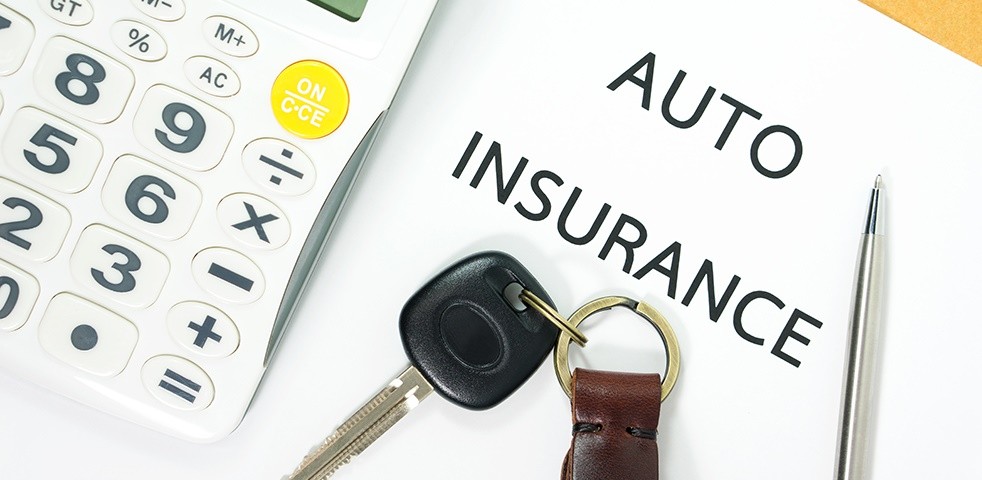Collision insurance in a car insurance policy covers damages to your vehicle resulting from a collision with another vehicle or object. Car insurance policies often include collision insurance, which is designed to cover damages to your vehicle in the event of a collision with another vehicle or object.
This coverage is important because it can help pay for repairs or even the replacement of your vehicle if it is damaged beyond repair. Whether you are at fault or not, collision insurance can provide financial protection and peace of mind in the event of a collision.
In addition to collision insurance, car insurance policies typically include other types of coverage such as liability insurance, comprehensive insurance, and uninsured/underinsured motorist coverage.

Credit: affairsway.com
Understanding Car Insurance Policies
Car insurance policies provide financial protection against any damage or loss that may occur to your vehicle. One important type of coverage is collision insurance. This policy is designed to cover the costs of repairing or replacing your vehicle in the event of a collision, regardless of who is at fault.
Collision insurance is especially valuable when accidents result in significant damage to your car. If your vehicle is damaged beyond repair, collision insurance can help cover the cost of a replacement. It is important to note that collision insurance typically requires you to pay a deductible before your coverage kicks in.
There are other types of car insurance policies to consider as well. Comprehensive insurance covers damage to your vehicle that is not caused by a collision, such as theft, vandalism, or natural disasters. Liability insurance covers the costs of injuries or property damage you may cause to others in an accident.
Understanding the different types of car insurance policies and their coverage is crucial when choosing the right policy for your needs. Remember to review your policy carefully and seek guidance from an insurance professional to ensure you have the adequate coverage in place.
Importance Of Collision Insurance
The importance of collision insurance cannot be emphasized enough. This type of coverage is designed to protect you financially in the event of a collision or accident involving your vehicle. Collision insurance specifically covers damages to your own vehicle, regardless of who is at fault for the accident. Unlike liability insurance, which only covers damages to another person’s vehicle or property, collision insurance ensures that you are not left with hefty repair bills.
Collision insurance is especially important for anyone who owns or leases a valuable vehicle that would be difficult or expensive to repair. It provides peace of mind knowing that you are protected financially in case of an accident, regardless of fault. Without collision insurance, you would be responsible for covering the costs of repairing or replacing your vehicle.
Collision insurance covers a range of damages, including those caused by collisions with other vehicles, objects, or even rollovers. It typically covers the cost of repairs or replacement of your vehicle up to its actual cash value. However, it’s important to note that collision insurance does come with a deductible, which is the amount you must pay out of pocket before your insurance kicks in.
How Collision Insurance Works
In a car insurance policy, collision insurance covers the cost of repairing or replacing your vehicle if it is damaged in a collision with another vehicle or object, regardless of who is at fault.
When obtaining collision insurance, it is important to consider the valuation method used by the insurance company to determine the value of your vehicle. Some companies use the actual cash value (ACV) method, which takes into account depreciation, while others offer agreed value coverage, which pays an agreed-upon amount in the event of a total loss.
Premiums for collision insurance are determined based on several factors, including the deductible amount, the make and model of your vehicle, your driving history, and your location. The higher the deductible you choose, the lower your premium will be.
When filing a collision insurance claim, you will typically need to provide proof of the collision, such as photographs or a police report. The insurance company will then assess the damage and provide an estimate for the cost of repairs or replacement. Once your claim is approved, you may be required to pay the deductible before the insurance company covers the remaining costs.

Credit: pioneermarketer.com
Exclusions And Limitations Of Collision Insurance
Exclusions in Collision Insurance:
- Intentional damage: Collision insurance does not cover damages caused intentionally by the policyholder.
- No other vehicles involved: If no other vehicle is involved in the accident, collision insurance may not apply.
- Vehicles not covered: Certain vehicles, such as motorcycles or recreational vehicles, may not be covered under collision insurance.
- Non-accident related damage: Collision insurance typically does not cover damage caused by non-accident-related factors, such as natural disasters or vandalism.
Limitations of Collision Insurance:
- Deductible: Policyholders are often responsible for paying a deductible before collision coverage kicks in.
- Actual cash value: Some policies only pay for the actual cash value of the vehicle at the time of the accident, which may be less than the replacement cost.
- Market value limitations: The policy may have limitations on the maximum amount paid for the vehicle in case of a total loss.
- Policy limits: Collision insurance has coverage limits, and any expenses exceeding those limits may not be covered.
Comparing Collision Insurance With Other Types Of Car Insurance
In a Car Insurance Policy Collision Insurance Covers Weegy
Comparing Collision Insurance with Other Types of Car Insurance:
Collision Insurance vs. Liability Insurance:
Collision insurance and liability insurance are two common types of car insurance coverage. Collision insurance covers the cost of repairing your own vehicle if it’s damaged in an accident, regardless of who is at fault. On the other hand, liability insurance covers the cost of damages you cause to someone else’s vehicle or property if you’re found at fault in an accident.
Collision Insurance vs. Comprehensive Insurance:
Similarly, comprehensive insurance and collision insurance are both types of coverage that protect your vehicle. However, they differ in what types of damages they cover. While collision insurance pays for damages resulting from accidents, comprehensive insurance covers damages caused by things like theft, vandalism, natural disasters, and falling objects.
Understanding the differences between collision insurance, liability insurance, and comprehensive insurance can help you choose the right coverage for your needs. It’s important to carefully review your policy and consider factors such as your vehicle’s value, your driving history, and your budget when deciding which coverage options to include in your car insurance policy.
Factors To Consider When Purchasing Collision Insurance
In order to make an informed decision about purchasing collision insurance, there are several factors that you should take into consideration. These factors include your vehicle’s age and value, your driving history, and your budget and deductible.
If your vehicle is newer and has a higher value, collision insurance may be more beneficial as it can help cover the cost of repairs or replacement in the event of an accident. On the other hand, if your vehicle is older and has a lower value, you may want to consider whether the cost of collision insurance premiums outweighs the potential payout.
Your driving history is also important to consider when purchasing collision insurance. If you have a history of accidents or have received multiple traffic violations, you may be considered a higher risk. This could result in higher premiums for collision coverage.
Lastly, your budget and deductible will play a role in determining the cost of collision insurance. A higher deductible can lower your premiums, but it also means you will have to pay more out of pocket in the event of an accident.
Tips For Choosing The Right Collision Insurance Policy
In order to choose the right collision insurance policy, it is important to conduct thorough research and compare various insurance providers. Take the time to gather information about each provider and their reputation in the industry, as well as the level of customer satisfaction they offer. Additionally, carefully consider the policy features and add-ons that each insurance company offers. These features can vary greatly and it is important to choose a policy that meets your specific needs. Pay attention to the deductible options, coverage limits, and any additional services that may be included. Lastly, review and understand the policy terms before making a final decision. Familiarize yourself with the coverage details, exclusions, and any conditions that may affect your claim. By following these tips, you can make an informed decision and ensure that you choose the right collision insurance policy.

Credit: www.linkedin.com
Frequently Asked Questions On In A Car Insurance Policy Collision Insurance Covers Weegy
Is A Car Insurance Policy Collision Insurance Covers?
Collision insurance is a component of car insurance that covers damage to your vehicle resulting from collisions with other vehicles or objects, regardless of fault. It provides financial protection for repairs or replacement costs.
Which Of The Following Would Be Insured By Collision Coverage?
Collision coverage insures damage to the insured vehicle caused by collisions or accidents with other vehicles or objects.
What Does Collision Coverage Insure Quizlet?
Collision coverage insures your vehicle against damage caused by collisions with other vehicles or objects, regardless of the fault. It covers the repair or replacement costs, up to the actual cash value of your vehicle.
Which Insurance Covers The Damage To His Car?
Comprehensive insurance covers the damage to his car. It provides coverage for damages caused by incidents other than collisions, such as theft, vandalism, or weather-related damages.
What Does Collision Insurance Cover In A Car Insurance Policy?
Collision insurance covers the cost of repairing or replacing your car in the event of a collision with another vehicle or object.
Conclusion
Collision insurance is a crucial component of a car insurance policy. It provides financial protection against damages sustained in a collision, whether it involves another vehicle or a stationary object. Understanding the coverage and benefits of collision insurance can help you make an informed decision when choosing your car insurance policy.
Its inclusion ensures that you are prepared for unforeseen accidents on the road, giving you peace of mind and financial security. Stay protected and drive safely!

